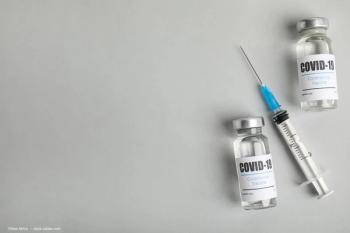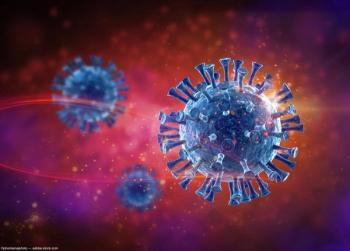
Regulating blood insulin levels in diabetic patients could lower risk of getting COVID-19
According to investigators, the SARS-CoV-2 spike protein physically interacts with GRP78 on the cell surface in patients with diabetes and promotes the binding to and accumulation in angiotensin-converting enzyme 2 (ACE2)-expressing cells.
Japanese investigators reported1 a new clue about why certain patient subgroups may be so severely affected by COVID-19.
The investigators found that in patients with diabetes, the SARS-CoV-2 spike protein physically interacts with GRP78 on the cell surface and promotes the binding to and accumulation in angiotensin-converting enzyme 2 (ACE2)-expressing cells.
GRP78 is found in adipose tissue, which may be a reservoir for SAR-CoV-2, and key to the vulnerability of older individuals and those who are obese or have diabetes who are more vulnerable to and more severely affected by COVID-19, according to first author Jihoon Shin, PhD, from the Department of Metabolic Medicine and Department of Diabetes Care Medicine, Osaka University Graduate School of Medicine in Osaka, Japan.
In light of the recognition of adipose tissue involvement in harboring the SAR-CoV-2 virus, the investigators wanted to find a link between the excess adipose tissue in older, obese, and patients with diabetes and their vulnerability to COVID-19, Shin explained.
Their results showed that GRP78 gene expression was highly upregulated in adipose tissue and was also increased with advancing age, obesity, and diabetes.
Because higher insulin levels are associated with those factors, the investigators wanted to determine if insulin was associated with the expression of GRP78, and when they exposed cells to insulin GRP78 was induced.
In line with this, they found that drugs used to treat diabetes by reducing insulin levels also decreased the expression of GRP78. They also found in a murine model that exercise and diet helped decrease the GRP78 expression in adipose tissue.
“This study provides scientific evidence for the role of GRP78 as a binding partner of the SARS-CoV-2 spike protein and ACE2, which might be related to the severe progression and outcome of COVID-19 in older and obese patients with diabetes,” the investigators concluded. “The management of hyperinsulinemia and the related GRP78 expression could be a therapeutic or preventative target.”
---
Reference
Shin J, Toyoda S, Nishitani S, et al. Possible involvement of adipose tissue in patients with older age, obesity, and diabetes with coronavirus SARS-CoV-2 infection (COVID-19) via GRP78 (BIP/HSPA5): significance of hyperinsulinemia management in COVID-19. Diabetes 2021 Oct; db201094.
Newsletter
Don’t miss out—get Ophthalmology Times updates on the latest clinical advancements and expert interviews, straight to your inbox.





























